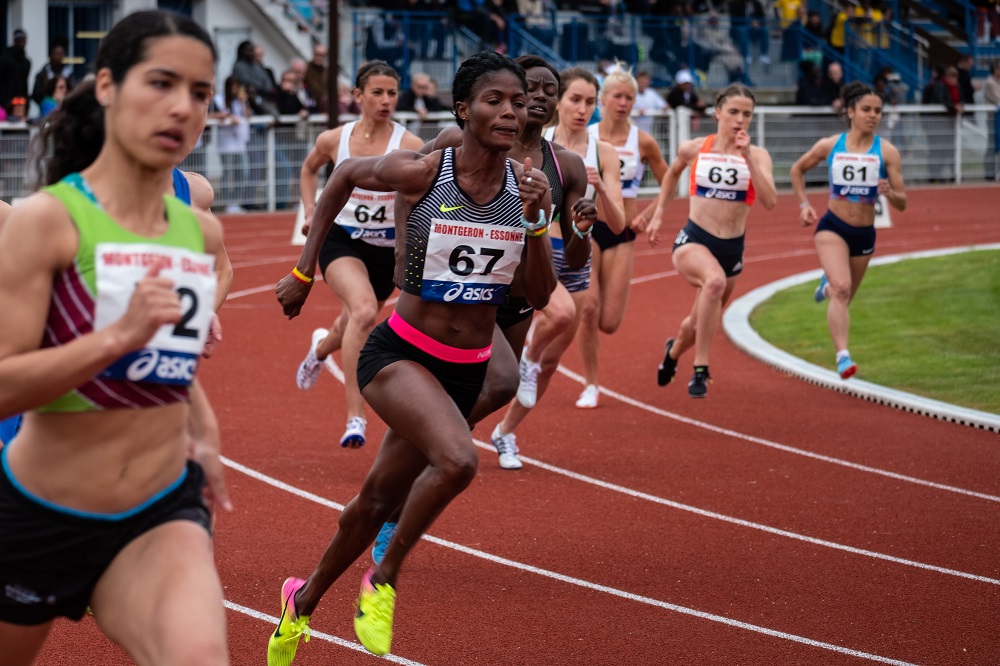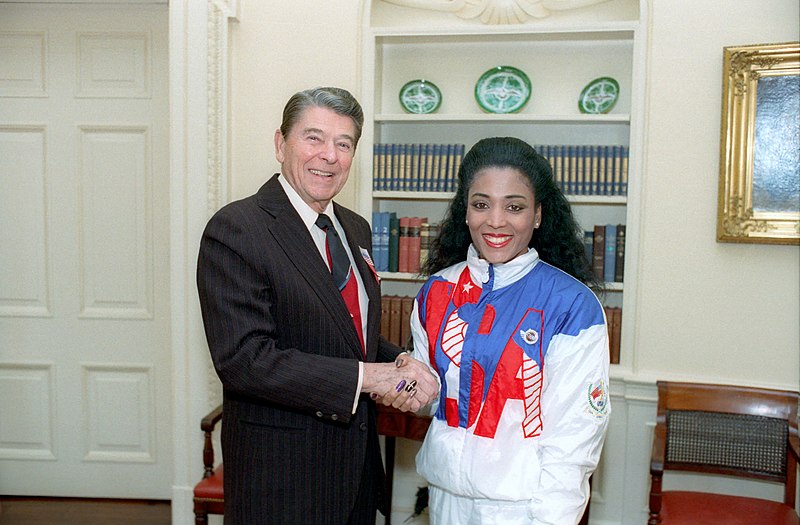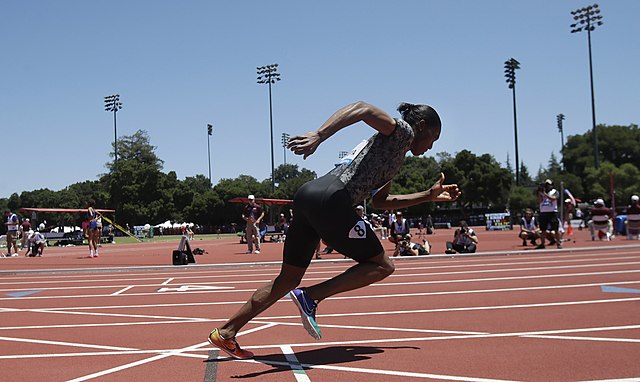By Veracia Ankrah
Posted on January 28, 2022

In late June of 2021, 21-year-old sprinter Sha’Carri Richardson became the fastest woman in the world, running an astounding 10.86 seconds at the U.S Olympic trials. Her alluring attitude and aura, chillingly reminiscent of the late, great Olympic track and field gold medalist Florence Griffith Joyner (commonly known as Flo Jo), along with her incredible talent created an instantaneous viral moment. Nearly a week afterwards, Richardson tested positive for use of marijuana and received a one-month suspension from the USA Track & Field Association, meaning she would not qualify to compete in the postponed Tokyo 2020 Olympics. Richardson’s drug test did not reveal any performance-enhancing drugs, and although all drug use is prohibited to athletes by the association, the larger issue here is the unfair treatment of Black women athletes in comparison to their peers.
Outside of professional sports, the War on Drugs incited by President Nixon in the 1970s was created to reduce the distribution of drugs and the potential of drug abuse. In turn, the War on Drugs led to the mass incarceration of African-Americans and people of African descent across North America due to harsh sentencing. These unjust biases are present in the world of professional athleticism and trickle down into the ways Black women are continuously overtested, forced to prove their innocence and even made to feel like their Black genetic make-up is somehow unnatural and unfair to other athletes. During the 1988 Olympics in Seoul, Joyner won a gold medal for her 100m sprint running 10.54 seconds but was accused of taking steroids. To this day her records remain unbroken and her legacy, although questioned, remains intact as she never failed a single drug test and her cause of death was revealed as a complication from an epileptic seizure.

Even with concrete evidence, Joyner’s loved ones are left with the burden of defending her honour as her legitimacy is continually questioned. Journalist and Founder of the online magazine Quillette Claire Lehmann tweeted claims that Joyner was obviously a drug user and went on to say Richardson must also use steroids because long hair and nails are known side effects. Actor Holly Robinson Peete quoted Lehmann’s tweet asking her to kindly keep her dear friend Joyner’s name out of her mouth–the only reasonable response to an overzealous white woman claiming to know Black women’s style and personal lives, as they often do. There is a long history of accusatory claims towards Black women in elite sports, ranging from their high testosterone levels being penalized and treated like drugs that enhance performance.
South African Olympic champion sprinter, Caster Semenya, has hyperandrogenism, a health condition that causes her body to produce increased levels of testosterone and as a result was suspended from competing for eight months in 2009. Semenya is a cisgender woman yet her femininity is in constant question simply because she is a star athlete. Her mere existence, in 2019 caused the International Association of Athletics Federations to require women with increased levels of testosterone to take hormone suppressants to compete in major competitions. Unfortunately, Richardson was not the only Black woman suspended from competing in the 2020 Olympics. Namibian sprinters Christine Mboma and Beatrice Masilingi were also banned from running in the 400m race by the committee for having high testosterone levels.

If it’s not biology, it’s another issue. For instance, how Black women chose to wear their hair in competition is often policed and ridiculed on various platforms. Lehmann’s tweet exposed the depths of systemic racism in society at large, but this year’s Olympics reinforced it. Alice Dearing, the first Black woman to represent Great Britain in a swimming competition, is banned from wearing Soul Caps, a type of swim cap that protects kinky, curly textured hair. The International Swimming Federation claims these particular hair caps don’t follow the “natural form of the head.” Meaning, that a Black woman’s head and hair are not natural forms. All of these unreasonable and unfounded claims are far too familiar to Black people. Black bodies are held to a different set of societal standards with rules created to hinder development and progress.
Black women are ostracized from sports and society at large when they are faced with barriers that render their natural bodies an unfair advantage to their achievements. Black women are not robots created for the white gaze and they deserve grace and acceptance just as they are. After years of Black women having to suppress their emotions, tennis player Naomi Osaka made a bold stance in protecting her peace and taking a break from press conferences. Serena Williams, the greatest tennis player of all time, expressed her frustration about the environment of the sport she has to continue to battle in. More recently, Simone Biles, one of the greatest gymnasts in the world, made a bold decision to withdraw from the competition in order to prioritize her mental health. Although Black women may not be able to compete in the ways they’d like this year, whether it be in track, swimming or tennis, they’ll continue to be revolutionaries who redefine the game. Time and time again, Black women will find ways to push back against the powers that be, raise the bar of excellence and rise from the ashes like phoenixes.

